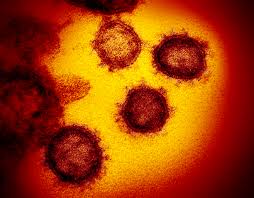There are many questions about the Novel Coronavirus pandemic (COVID-19) and also a lot of misinformation available. My aim is to gather resources to keep my patients and their loved ones informed. Please know that this is a dynamic situation changing daily, so I will do my best to keep this as updated as possible.
Q: What is a coronavirus?
A: Coronaviruses are a large family of viruses which may cause illness in animals or humans. Several coronaviruses are known to cause respiratory infections in humans ranging from the common cold to more severe diseases such as Middle East Respiratory Syndrome (MERS) and Severe Acute Respiratory Syndrome (SARS). The most recently discovered coronavirus causes coronavirus disease COVID-19.
Q: What are the symptoms of COVID-19?
A: The most common symptoms are fever, tiredness, and dry cough. Some patients may have aches and pains, nasal congestion, runny nose, sore throat or diarrhea. These symptoms are usually mild and begin gradually. Some people become infected but don’t develop any symptoms and don’t feel unwell. The majority of people (about 80%) will recover from the disease without needing special treatment. Around 1 out of every 6 people who gets COVID-19 becomes seriously ill and develops difficulty breathing. People with fever, cough and difficulty breathing should seek medical attention immediately.
Some patients will develop mild gastrointestinal (GI) symptoms including diarrhea, nausea, vomiting, and abdominal pain preceding the typical fever, dry cough, and difficulty breathing. Although early reports indicate that only about 10% of people with COVID-19 have GI symptoms, it isn’t yet known whether some infected individuals have only GI symptoms and don’t develop respiratory symptoms. Currently, screening is focusing on patients with travel or exposure history and respiratory symptoms.
Q: What do I do if I have symptoms?
A: Call your doctor’s office. They will direct you to the correct place for testing if they think that you are at risk. If it is evening or the weekend, go to either an Urgent Care facility or the nearest Emergency Department, and wear a mask until you can be assessed properly by a healthcare professional.
Q: What is the status of COVID-19 in Ventura County?
A: We have several confirmed cases in Ventura County, and the County of Ventura has declared a local health emergency. Please stay tuned to www.vcemergency.com for more information.
Q: Who is at risk of COVID-19?
A: Everyone is at risk. However, the most at risk are the elderly and those with immune conditions. Older people, especially over age 60, and those with underlying medical problems like high blood pressure, cancer, lupus, heart problems or diabetes, are more likely to develop serious illness. Men also appear to be at higher risk, especially if they are elderly or have an immune condition.
Q: How does COVID-19 spread?
A: COVID-19 is transmitted largely via respiratory droplets from the mouth or nose which are spread when an infected person sneezes, coughs, or exhales. These droplets land on objects and surfaces or hang in the air for a period of time. Other people then can infect themselves by touching these objects or surfaces, then touching their eyes, nose or mouth. People can also catch COVID-19 if they breathe in droplets from an infected person who sneezes, coughs out or exhales droplets. This is why it is important to stay more than 3 feet away from a person who is sick. The disease appears to also be found on fecal matter, which is why it is extremely important to wash hands after going to the bathroom and not touch any areas (faucet handles, door handles, etc) with bare hands.
Q: How do I protect myself from COVID-19?
A: Although the virus can live on surfaces for a day or more, and live in the air for hours, it is a fragile virus. The outer membrane of the virus is made of lipids and so can be broken by soap or hand sanitizer. So the same common precautions that we use to prevent colds and flus can help protect from COVID-19.
- Wash your hands with soap for at least 20 seconds, making sure to scrub all surfaces including under the finger nails, the back of the hands, and in between the fingers. When hand washing isn’t possible, use hand sanitizer. Wipe down areas with sanitizing wipes.
- Try to avoid social gatherings, as this means the exposure risk is higher. If you have to travel, consider driving instead of flying. If you can work from home and your office will allow it, please do. Stay more than 6 feet away from a person who is sick. Avoid shaking hands or hugging. Avoid touching your face, nose, or eyes.
- Make sure you, and the people around you, follow good respiratory hygiene by covering your mouth and nose with your bent elbow or tissue when you cough or sneeze. Then dispose of the used tissue immediately and either wash your hands or use hand sanitizer.
- Stay home if you feel unwell. If you have a fever, cough and difficulty breathing, seek medical attention and call in advance. Follow the directions of your local health authority.
Q: Are there any other measures I can take?
A: Keeping your immune system healthy is the best thing any of us can do. Make sure you are eating good, balanced, and nutritious meals with plenty of fruits and vegetables. Avoid fast food and processed food. Avoid soda and sugary drinks. Avoid tobacco. Avoid putting your lungs under the stress of other potential irritants like perfumes, cologne, marijuana smoke and incense. Consider using a daily saline sinus rinse like a Neti Pot or the Neil Med Sinus Rinse. Make sure you are getting enough sleep. Consider starting a meditation/mindfulness practice and focus on deep breathing.
Q: Where can I go to get more information?
A: Here is a list of reliable resources:
.


